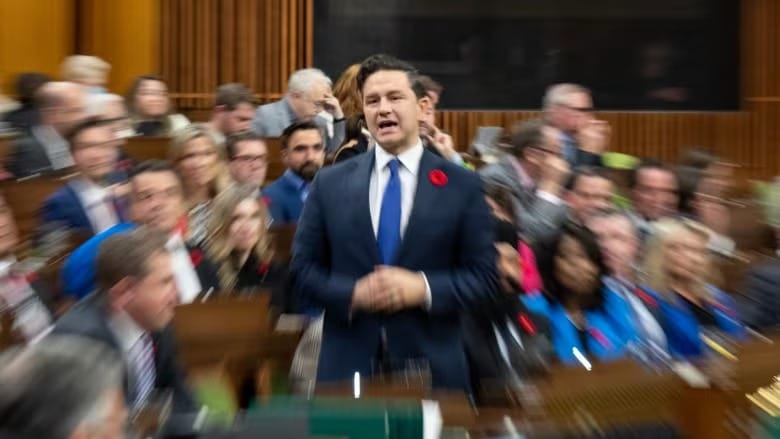Poilievre's office maintains tight control over what Conservative MPs say and do
Party staffers monitor caucus for signs of message indiscipline and fraternization with other MPs

After two years under Pierre Poilievre’s leadership, many Conservative MPs feel they have significantly less freedom compared to before his tenure. Despite his campaign promise to make Canada "the freest country in the world," Poilievre is said to maintain strict control over his caucus.
Conservative MPs have reported being closely monitored by party staff, both inside and outside Parliament. Public reprimands are common for those who deviate from the party’s messaging. “Everyone is being watched—what we say, what we do, who we talk to. We're told not to fraternize with MPs from other parties. That’s not normal,” shared one source.
The tightly controlled environment reportedly rewards MPs who adhere to party slogans and rhetoric, such as “axe the tax” and “Justinflation,” with more speaking opportunities. Those who stray from the official line, however, may face reduced speaking time or other consequences. One MP described the atmosphere: “You don’t need to be told what to do. You watch the leader and understand what’s expected.”
Poilievre’s leadership style has also drawn comparisons to that of former Conservative Prime Minister Stephen Harper, emphasizing strict message discipline. Sources say Poilievre, who won the party leadership with a decisive 68% vote, is not beholden to any faction within the party, giving him the latitude to enforce discipline.
While some members see the control as a way to avoid missteps and maintain unity, others express frustration. “It can demoralize caucus members and create internal opposition,” said a former Conservative adviser.
Instances of public corrections further highlight this top-down approach. MPs who voiced independent opinions on housing funds, provincial elections, or social issues like abortion and same-sex marriage were swiftly compelled to align with the party's stance.
Journalists have noted changes too, with Conservative MPs now hesitant to speak freely during caucus meetings or on-camera interviews. Party staff reportedly document MPs’ interactions with reporters, adding another layer of scrutiny.
Despite internal discontent, Poilievre’s strategy appears effective in consolidating power and maintaining a unified public image. The Conservative Party currently holds a significant lead in several polls. Observers suggest, however, that this approach may need to evolve if Poilievre transitions from opposition leader to prime minister. “Once in power, it’s important to allow more freedom and showcase the team,” noted a former adviser. Until then, the focus remains on avoiding pitfalls and projecting consistency.





